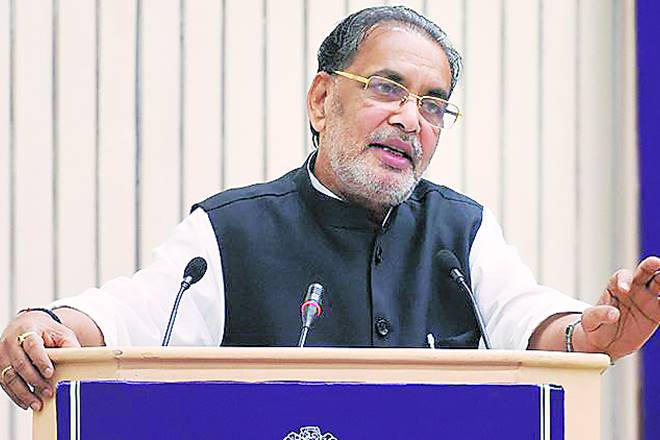More than a year after the rollout of the NDA government’s flagship Pradhan Mantri Fasal Bima Yojana (PMFBY), the response has been mixed. Union agriculture minister Radha Mohan Singh spoke to Sandip Das on implementation aspects of the crop insurance scheme and other key issues impacting the agricultural sector.
What are your views on the implementation of Pradhan Mantri Fasal Bima Yojana (PMFBY)? There are reports of delays in settlement of claims by farmers.
In 2016-17 (including both kharif and rabi seasons), which was also a good monsoon year, against the gross premium collection of Rs 22,344 crore by insurance companies, total claims have been estimated at about Rs 15,100 crore or 68% of premium collected. Till now, claims of Rs 9,446 crore have been approved and claims of Rs 6,624 crore have already been paid by insurance firms to farmers. Claim calculation for some areas is yet to be completed by insurance companies. In comparison to 2011-12, which was also an agriculturally favourable year, claims settled were only Rs 1,357 crore against a premium payment of Rs 2,131 crore. We are focussing on reducing time taken for settlement of claims under PMFBY.
Besides, for the first time, during the last one year in many cases 25% of the advance relief against the claim had been provided to farmers because of mid-season weather conditions like floods, drought, unseasonal rains in Uttar Pradesh, Chhattisgarh, Maharashtra and Madhya Pradesh. In both kharif and rabi seasons, 30% of the gross cropped area or around 58 million hectare had been covered under PMFBY, while around 5.74 crore farmers have availed the insurance facility.
Many states want to implement PMFBY on their own, without depending on empanelled private and public sectors companies. Also, there are reports about the high premium charged for many crops.
Currently, PMFBY is being implemented by five public and 13 private insurance companies which are empanelled, and the premium subsidy is shared equally by states and the Centre. Some states have said they find it difficult to pay their share of premium for PMFBY. So, we asked them to form their own crop insurance companies. So far, Haryana, Gujarat and Punjab have expressed their desire to have their own firms to implement PMFBY. About the reports on high premium being charged from the farmers, especially for groundnut in Gujarat, our officials are examining the issue. Our scheme is aimed at providing compensation immediately by using technology. States need to accelerate data collection. We have given them drone technology training. They can also use space technology. A Central crop insurance portal has been developed which integrates farmers and other stakeholders and also provides for online registration of farmers.
Many of the states including Haryana are showing their minimum support price (MSP) operations under eNAM. Have you informed the concerned states on this aspect as the eNAM platform is for price discovery through open bidding, while MSP operations are carried out by government agencies?
We have asked states not to record MSP operations under eNAM, as the government firms like Food Corporation of India (FCI) and state government agencies buy mostly rice and wheat through the payment of MSP to farmers. Thus, no open bidding takes place using the eNAM platform. Currently, we are focusing on 117 odd mandis for facilitating online trade within the state. Karnataka, which has taken several initiatives in reforming the agriculture marketing system, has informed us that they will join eNAM once inter-state trade is allowed in the pan-India platform. Karnataka, through a special purpose vehicle Rashtriya eMarket Services Private, has linked its 157 mandis across the southern state in the last two years. Through a unified market platform, where traders from various states including Tamil Nadu, Andhra Pradesh, Maharashtra and Kerala, have taken unified statewide licence to participate in online markets
The agriculture ministry’s committee has come out with a blueprint on doubling farmers’ income by 2022. What will be the steps taken to implement the recommendations of this committee?
Currently, we have asked for inputs from experts on the exhaustive report for doubling farmers’ income, and subsequently, we will hold inter-ministerial consultation for arriving at convergence in approach towards achieving the goal.

